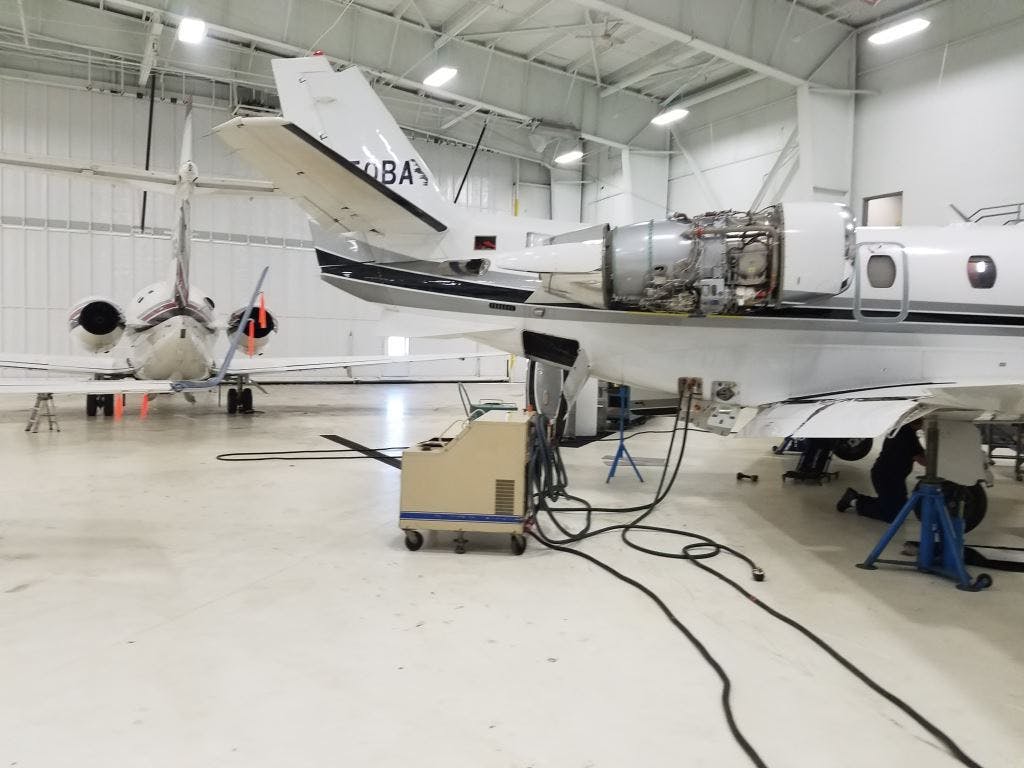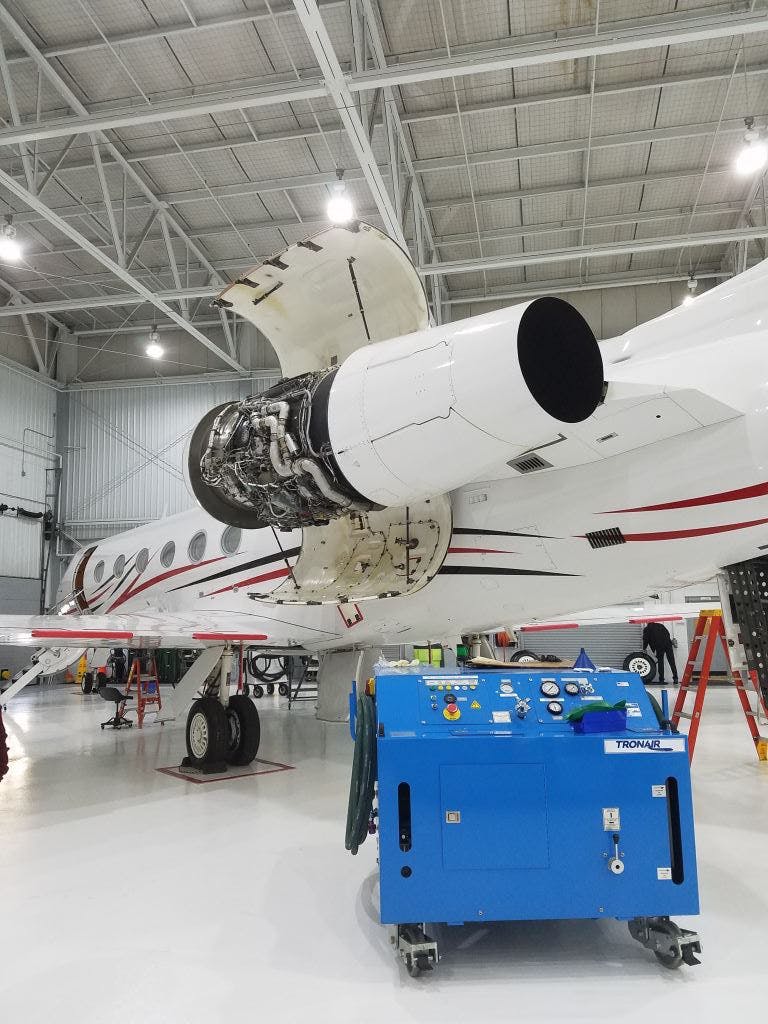Hydraulic power units (HPUs), or mules, are vital for the testing and maintaining of aircraft systems. But they can’t be used if they aren’t in peak operational condition. And that’s where preventative maintenance comes in. By maintaining your HPU before it breaks down, you’ll be able to trust that it will work as intended whenever you need it. Some of the most important aspects of HPU maintenance include checking and changing the oil, cleaning filters and strainers, checking for and fixing leaks, and lubricating the motor.
Checking and Changing Oil

Any time a motor is involved, the oil is going to be one of the first aspects of the system to be checked during maintenance or repair. First, the oil levels, temperature, and viscosity will need to be checked. There must be enough oil and it needs to be the right consistency for it to work properly. If the oil is too hot, it may appear dark or smell burnt. Without the right amount of oil in the right conditions, the motor won’t be able to operate at peak performance and the pump may be damaged.
Other conditions that the oil must be checked for are contaminants and wear. Contaminants suspended in the oil can damage other parts of the system through abrasion. Pumps, hoses, and seals are especially sensitive to contaminant abrasion. However, even if the oil is free from contaminants, it can still wear out over time, which is also damaging to the system. As the oil wears, it begins to break down and no longer does its job as effectively.
If the oil is in need of a change, this is also the perfect time to have your tank cleaned and checked for damage. When the oil is removed from the tank to be changed, the tank should be cleaned and checked for cracks before the new oil is added. If the oil was simply removed to clean and check the tank without an oil change being needed, it can be replaced as long as it is still free of contaminants. The suggested frequency of oil changes depends on the operating conditions of your motor, but it should generally be done after anywhere between 1,000 and 2,000 hours of use.
Cleaning Filters and Strainers
Filters and strainers protect the rest of your hydraulic system from contaminants. But, if they collect too much dirt, they won’t be able to protect your system any longer. For this reason, filters need to be changed and strainers need to be cleaned on a regular basis. For strainers, this is usually done after every 100 hours of use. In some cases, if there is a relatively small amount of dirt on the filter, it can be cleaned by following proper cleaning procedures. But, generally, filters are changed instead because it’s easier and often less expensive.
Checking for and Fixing Leaks

Leaks can occur throughout the entirety of a hydraulic system and have two significant, negative impacts associated with them. Obviously, they can lead to a damaging loss of hydraulic fluid or oil as it drains out of the system. However, these leakage points can also become intrusion points for external contaminants of all kinds. It’s for that reason that even if a leak isn’t decreasing the amount of fluid in your system very quickly, it is still important to have it fixed as soon as possible.
Common places to check for leaks include valves, pipes, connections, seals, hoses, fittings, and tanks. Once a leak has been successfully identified, the leaking part will generally be replaced to solve the problem. This is the ideal form of repair for smaller parts that are relatively easy to replace such as seals, fittings, and hoses. If the leak allowed for contaminants to enter the system and damage other components, then the repair job may be much more extensive. Sometimes, larger parts such as tanks can be directly repaired rather than replaced. This can be a more cost-effective option if the repair is easy enough.
Lubricating the Motor
Lubricating the motor helps it to operate smoothly and increases its overall lifespan. However, each motor manufacturer will generally specify different instructions for how and how frequently their motors should be lubricated. This can get confusing if your GSE fleet includes equipment with motors manufactured by a variety of different companies. Luckily for you, our technicians are experienced with motors from many different equipment manufacturers. And if they come across a manufacturer they aren’t as familiar with, they have the resources necessary to find the information they need on how to service it at their disposal.
Conclusion
Hydraulic power units are the workhorses (mules) of your GSE fleet. They provide auxiliary power to aircraft systems for maintenance and repair purposes, and without them, your business can come to a standstill. For this reason, it is important to make sure your HPUs are properly maintained so that they are always in working condition when you need them. Preventative maintenance services for HPUs include checking and changing the oil, replacing and cleaning filters and strainers, checking for and repairing leaks, and lubricating the motor.
FlyTek GSE
Contact us today if you have HPUs or other ground support equipment that is in need of maintenance or repair. We offer both in-house and onsite services, including contactless onsite service during the pandemic.

